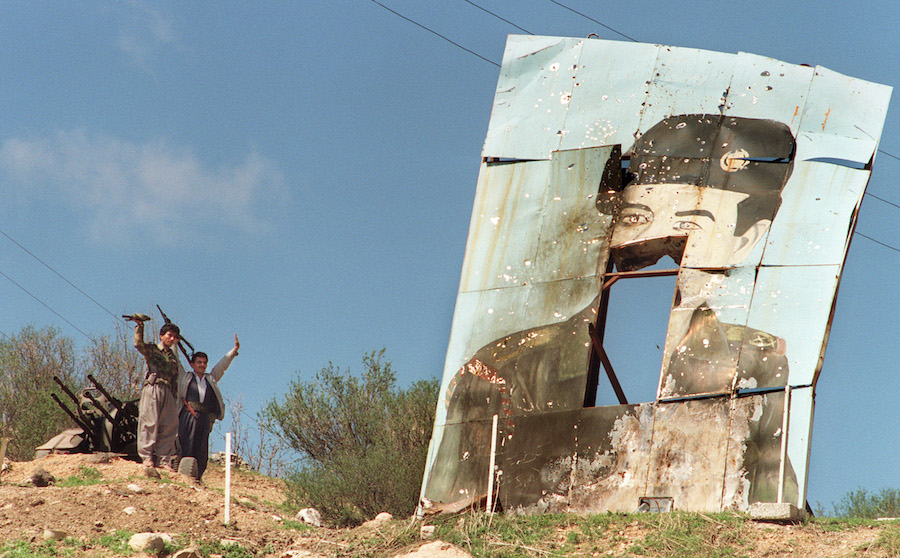Iraqis pay price for 30 years
https://arab.news/5nbxm

Aug. 2 is the anniversary of Saddam Hussein’s invasion of Kuwait, when a dictator who did not shrink from using chemical weapons on his own people coveted his neighbor’s possessions and decided to assert himself.
He went too far. The UN and the Arab League gave Saddam until Jan. 15 to withdraw, after which the Security Council added military sanctions to economic ones. The US formed a coalition of 35 countries, not all of which contributed militarily, with most of the forces coming from the US, Saudi Arabia and the UK. Operation Desert Storm began on Jan. 17, 1991, and images of burning oilfields and the air bombardment of Baghdad are deeply engrained in the memory of those of us old enough to remember.
The troops stopped short of Baghdad and left Saddam in place, because George H. W. Bush chose to remain within the remit of the Security Council mandate and international law, and the war ended on Feb. 28, 1991. Worse was to come, however, for Iraq. Economic sanctions took their toll, as did violence by Saddam against his own people. George W. Bush’s pretexts for invading Iraq in 2003 (weapons of mass destruction and Saddam’s collaboration with Al-Qaeda) were never proved, but the immediate result of Operation Iraqi Freedom was never in doubt. Saddam was deposed, captured, tried and executed.
The huge price ordinary Iraqis have paid, and are paying day in and day out, should be foremost on our minds
Cornelia Meyer
The US has paid a high price for its involvement in Iraq. About 5,000 US troops have died there, and the financial cost has been estimated at $5,000 per second. But the price paid by the Iraqi people has been far, far higher. As of April 2018, there were 2.1 million displaced people in Iraq. According to UNICEF, malnutrition is widespread, especially among children. The country’s security apparatus was not fit for purpose and was overwhelmed by insurgents from all sides. The vacuum left by the US withdrawal was quickly filled by Daesh and its reign of terror in swaths of the country.
Iraq is marred by sectarian divides, violence and jockeying for power among ethnic groups. It is a playground for foreign countries, particularly Iran, seeking and obtaining influence. The biggest cancer may be corruption: Iraq is theoretically wealthy, with the world’s fifth-largest oil reserves and fertile land, but basic infrastructure such as water and power is sorely lacking, one of the reasons for widespread protests last year. International Energy Agency executive director Fatih Birol warned last week that if people lack access to power in the dead heat of this summer, there may be riots. And now, to make matters worse, there is the COVID-19 pandemic.
We should remember the invasion of Iraq in 1990, and the fact that the UN managed to speak with one voice to send the predatory Saddam Hussein back home. We must also remember what happened thereafter. The huge price ordinary Iraqis have paid, and are paying day in and day out, should be foremost on our minds. They have been the victims of recent history and they deserve much better.
- Cornelia Meyer is a business consultant, macro-economist and energy expert. Twitter: @MeyerResources







































